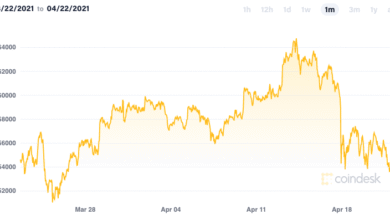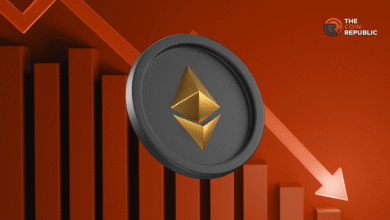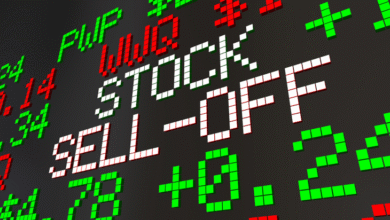UAE Bitcoin Holdings: Reaching $712M in Digital Assets

UAE Bitcoin holdings have made significant headlines as the United Arab Emirates rises to become the fourth-largest government holder of bitcoin, with an impressive inventory valued at approximately $712 million. According to Arkham Intelligence, the UAE’s extensive holdings are primarily the result of its robust bitcoin mining operations led by Citadel Mining. This strategic endeavor not only showcases the UAE’s commitment to leveraging its natural energy resources but also aligns with its broader cryptocurrency strategy. In contrast to traditional government bitcoin holders like those in the United States and United Kingdom, who often acquire assets through law enforcement actions, the UAE positions itself as a front-runner in the realm of bitcoin mining and digital asset accumulation. By actively participating in the bitcoin market, the UAE is reshaping its financial landscape and reinforcing its status as a key player in the global cryptocurrency arena.
In recent developments, the assets held by the UAE in bitcoin have brought attention to its unique approach in the digital currency landscape. Rather than merely accumulating cryptocurrencies through market purchases or asset seizures, the UAE has forged a path focused on bitcoin mining, spearheaded by entities like Citadel Mining. This strategy not only reflects the region’s adaptation to emerging technological trends but also indicates a calculated approach to wealth accumulation through digital means. As government-backed initiatives in blockchain technology gain momentum, the UAE’s position as a leading government cryptocurrency holder underscores the potential for sovereign entities to harness digital assets strategically. The collaboration between the UAE government and private mining operations is fostering a new era of financial innovation and establishing the country as a pivotal hub for cryptocurrency.
UAE Bitcoin Holdings: Leading the Charge in Cryptocurrency
The United Arab Emirates (UAE) has emerged as a significant player in the global cryptocurrency landscape, particularly with its impressive bitcoin holdings. With a current stash of 6,333 bitcoins, translating to a staggering $712 million in value, the UAE has positioned itself as the fourth-largest government holder of bitcoin according to Arkham Intelligence. Unlike other nations that have acquired cryptocurrencies through law enforcement seizures, the UAE’s impressive portfolio results entirely from its robust bitcoin mining operations led by Citadel Mining. This strategic approach is not just about asset accumulation; it reflects the UAE government’s broader vision of integrating digital currencies into its financial ecosystem.
This substantial bitcoin repository places the UAE in a uniquely advantageous geopolitical spot among global economies. The country’s sophisticated infrastructure and energy resources are harnessed to mine bitcoin effectively, redirecting power towards the cultivation of digital wealth. As countries worldwide explore diverse approaches to cryptocurrency regulations and holdings, the UAE’s proactive stance highlights the potential of mining as a legitimate strategy for government investments in the future of finance, showing a clear path toward leveraging sovereign capabilities to build decentralized financial reserves.
UAE Cryptocurrency Strategy: A New Frontier in Bitcoin Adoption
The UAE’s cryptocurrency strategy is characterized by a well-structured approach that prioritizes bitcoin mining as a means of asset acquisition. With influential groups like the UAE Royal Group backing major players such as Citadel Mining, the government showcases its commitment to not only mining bitcoin but also fostering an evolving crypto-friendly environment. This strategy, combined with the strategic construction of massive mining facilities—such as the one on Al Reem Island—illustrates the UAE’s ambition to break new ground in the cryptocurrency sector. Such initiatives can lead to enhanced technological developments and bolster the nation’s economic resilience.
Furthermore, the Emirates’ collaboration with local enterprises like Phoenix Group signifies a robust public-private partnership model that is rare in the cryptocurrency domain. These initiatives help in building a solid foundation for the UAE’s broader cryptocurrency ambitions. The strategic alliances formed between government bodies and private firms empower a dynamic ecosystem that promotes innovation, investment, and integration of cryptocurrencies like bitcoin into traditional markets. As the UAE continues to ramp up its bitcoin mining operations, the emphasis on creating sustainable and responsible mining practices will play a vital role in shaping its future as a leader in the digital currency arena.
The Role of Citadel Mining in UAE’s Bitcoin Operations
Citadel Mining stands at the forefront of the UAE’s bitcoin operations, serving as the chief vehicle through which the nation’s bitcoin assets are cultivated. Owning 85% of Citadel, the UAE-based company 2pointzero demonstrates how the UAE Royal Group’s investments support the growth of cryptocurrency mining. Established with cutting-edge technology and significant investment backing, Citadel Mining exemplifies how a government can leverage private sector efficiencies to dominate bitcoin mining operations. By developing substantial mining facilities in rapid timeframes, Citadel is paving the way for the UAE to boost its digital currency assets significantly.
Notably, Citadel Mining not only contributes to the UAE’s bitcoin holdings but also plays a key role in the blockchain sector’s evolution. With an operational capacity that aligns with the country’s energy resources, Citadel Mining supports the economy by funneling resources into bitcoin production rather than traditional financial securities or market purchases. This model sets a precedent for how countries might engage with the cryptocurrency economy in the future, moving towards a model that emphasizes resource-based strategic development rather than dependency on external market fluctuations.
UAE Bitcoin Mining: A Strategic Asset for the Future
The UAE’s foray into bitcoin mining has proven to be a financially sound strategy that aligns with its vision to be at the forefront of technological innovation. By investing heavily in energy-efficient mining operations, the country is not only tapping into renewable energy resources but is also securing its position in the global bitcoin market. This move showcases the potential for mining to act as a key driver of economic growth, as the UAE utilizes its natural resources to yield considerable returns from bitcoin holdings.
As the country continues to enhance its capabilities in bitcoin mining, the long-term implications for the economy are profound. The ability to produce bitcoins domestically allows the UAE to build a sovereign digital asset reserve that supports financial stability and diversification. It also positions the country as a leader among Middle Eastern nations in the digital currency field, encouraging investment and interest from various stakeholders in the cryptocurrency sector. The UAE’s dedicated approach to mining exemplifies the smart interplay between resource allocation and technological advancement.
UAE’s Bitcoin Hoard in Comparison to Other Nations
When examining the UAE’s current bitcoin holdings within a global context, the nation showcases a unique approach contrasted with traditional methods employed by other countries. Unlike governments that primarily acquire bitcoin through law enforcement seizures, such as the United States, the UAE focuses on a mining-centric strategy. This allows for a more sustainable and direct control over its cryptocurrency assets. The significance of its $712 million bitcoin holdings speaks volumes about its innovative stance compared to the likes of established bitcoin holders.
Additionally, the diversification of the UAE’s investment strategy, utilizing its energy resources and technological advancements in bitcoin mining provides a competitive edge over other nations. The proactive approach taken by the UAE indicates a long-term commitment to cryptocurrency, as opposed to temporary or reactionary measures. As more nations look to adopt cryptocurrencies into their financial systems, the UAE sets a concrete example of what deliberate planning and resource engagement can achieve in building a substantial and sustainable digital currency portfolio.
Tax Implications of Bitcoin Holdings in the UAE
As one of the leading global financial hubs, the UAE’s approach to tax implications concerning cryptocurrency holdings is pivotal in determining its attractiveness as a haven for bitcoin investment. Currently, the UAE does not impose taxes on personal income—which extends to capital gains made from cryptocurrencies. This favorable tax environment serves as a significant draw for investors and miners alike, allowing for greater profitability and retention of wealth within the country. As the UAE aims to capitalize on its burgeoning cryptocurrency market, tax legislation will play a crucial role in shaping future investment dynamics.
While the absence of personal income taxes provides a substantial incentive, the UAE government also focuses on developing comprehensive regulatory frameworks that ensure investor protection and market integrity. By striking a balance between encouraging investment and addressing potential risks associated with cryptocurrency trading and holdings, the UAE can foster an environment that not only attracts but retains crypto-related businesses. Understanding the implications of taxes on bitcoin holdings will be crucial for both investors and the government as they navigate this evolving landscape.
Fostering Innovation in the UAE Cryptocurrency Market
The United Arab Emirates is not just about mining and holding bitcoin; it actively seeks to foster innovation within the cryptocurrency market. The government has taken significant strides to create a regulatory framework that encourages technological advancements while ensuring that it remains a competitive arena for blockchain startups. By positioning itself as a conducive environment for innovation, the UAE aims to become a leader in blockchain technology and digital currencies. Initiatives aimed at providing support to local enterprises in the digital space are being prioritized, showcasing the country’s commitment to fostering an ecosystem ripe for growth.
Various organizations and companies, including those linked to bitcoin mining operations, are being encouraged to innovate, leading to the emergence of new blockchain applications and services. This push for innovation is vital for the UAE in building a resilient economy that can adapt to the rapid changes in the financial landscape. By investing in research and development, and encouraging collaboration among tech firms, the UAE aims to create a sustainable model that solidifies its position as a leader in the global cryptocurrency market.
The Importance of Sustainable Mining Practices in the UAE
As the UAE advances its position in the cryptocurrency landscape through bitcoin mining, the significance of sustainable mining practices cannot be overstated. The country’s rich energy resources are critical to its mining operations; however, the environmental impact of bitcoin mining is currently under scrutiny. Therefore, adopting sustainability-centric approaches to mining operations will not only enhance the brand image of UAE-based firms but also align with the global push towards greener technologies. Sustainable mining practices can significantly mitigate carbon footprints and can potentially lead to the creation of eco-friendly cryptocurrency projects, showcasing the UAE’s commitment to responsible financial operations.
Incorporating sustainable mining within the UAE’s cryptocurrency strategy reinforces its standing on the international stage as a forward-thinking entity. This not only solidifies its market position but also contributes positively to global discourse surrounding climate change and the future of energy use in digital currencies. As the world leans towards more conscience-driven investments, the UAE’s dedication to sustainability in bitcoin mining will likely attract more investors, ensuring economic growth aligned with environmental responsibilities. This dual focus on profitability and sustainability will secure a significant role for the UAE in the future landscape of cryptocurrency.
Frequently Asked Questions
What is the significance of UAE Bitcoin holdings in the context of global cryptocurrency markets?
The UAE’s Bitcoin holdings, now estimated at $712 million, position it as the fourth-largest government holder of Bitcoin globally, as reported by Arkham Intelligence. This significant stake highlights the UAE’s strategic move towards integrating digital assets into its economy, showcasing a dedication to cryptocurrency mining through ventures like Citadel Mining.
How does UAE Bitcoin mining contribute to the country’s economic strategy?
UAE Bitcoin mining plays a critical role in the nation’s economic strategy by leveraging its energy resources for digital asset production. The establishment of large-scale mining facilities, such as those developed by Citadel, demonstrates the UAE’s commitment to becoming a hub for cryptocurrency and blockchain innovations, enhancing its geopolitical influence.
Who are the principal players in UAE Bitcoin holdings and mining operations?
The primary players in UAE Bitcoin holdings are Citadel Mining and IHC, with Citadel 85% owned by the private firm 2pointzero, which is fully owned by IHC. The UAE Royal Group, led by Sheikh Tahnoon bin Zayed Al Nahyan, holds a controlling stake in IHC, thereby intertwining the country’s leadership with its Bitcoin mining endeavors.
What role does Arkham Intelligence play in reporting UAE Bitcoin holdings?
Arkham Intelligence serves as a blockchain analytics firm that monitors and reports Bitcoin holdings across various entities, including governments. Their recent findings identified the UAE’s Bitcoin wallets and underscored the country’s emergence as a significant player in the Bitcoin landscape, marking it as the fourth-largest government holder of Bitcoin.
How does the UAE compare to other governments in terms of Bitcoin reserves?
Unlike countries like the United States and the United Kingdom, which primarily hold Bitcoin through law enforcement seizures, the UAE’s Bitcoin reserves arise from its Bitcoin mining operations. This unique approach, facilitated by Citadel Mining, positions the UAE in a different light, focusing on direct resource extraction for their holdings.
What implications do UAE Bitcoin holdings have for future cryptocurrency regulations?
The UAE’s proactive stance in accumulating Bitcoin through mining may lead to a more structured regulatory framework for cryptocurrencies within the region. As the government positions itself as a leader in digital assets, it may create policies that foster further innovation and investment in the cryptocurrency sector, aligning with its broader economic goals.
Can you explain the relationship between Citadel Mining and the UAE government in terms of Bitcoin holdings?
Citadel Mining is a key player in the UAE’s Bitcoin strategy, operating under the ownership of IHC, which is closely associated with the UAE government through the Royal Group. This relationship allows the UAE to control and accumulate Bitcoin assets mined from its extensive facilities, showcasing a collaborative effort between private and public sectors in the crypto space.
What is the impact of UAE’s Bitcoin mining on its energy resources?
The UAE’s Bitcoin mining operations, such as those conducted by Citadel, channel the country’s energy resources into the production of digital currency. This integration of energy and cryptocurrency mining not only adds value to the country’s resource portfolio but also promotes a shift towards utilizing renewable energy sources in futuristic mining practices.
What does the future hold for UAE’s cryptocurrency strategy beyond Bitcoin holdings?
Looking ahead, the UAE’s cryptocurrency strategy may expand beyond Bitcoin holdings to include a broader spectrum of digital assets, blockchain technology applications, and regulatory frameworks that attract global investors. The success of current mining operations could pave the way for further innovations in the cryptocurrency sector, reinforcing the UAE’s position as a leading digital economy.
How has the UAE’s Bitcoin strategy been received internationally?
Internationally, the UAE’s Bitcoin strategy has garnered attention for its unique approach of mining instead of acquiring assets through market trades or seizures. This proactive methodology positions the UAE as an innovative leader in the cryptocurrency space, potentially influencing other nations to consider mining as an avenue for treasury diversification and sovereign asset growth.
| Key Point | Details |
|---|---|
| UAE Bitcoin Holdings | The UAE has amassed 6,333 BTC valued at approximately $712 million, making it the fourth-largest government holder of Bitcoin. |
| Mining Operations | These holdings originate from bitcoin mining operations by Citadel, owned by the UAE Royal Group through IHC. |
| Geopolitical Strategy | The UAE’s approach of using energy resources for Bitcoin mining positions it effectively in the digital currency landscape. |
| Unique Holding Nature | Unlike other governments, the UAE’s reserves are earned through mining rather than through seizures. |
| Partnerships | Citadel collaborates with Phoenix Group and the government-owned IHC to expand its mining capabilities. |
| Future Influence | The mining-first strategy suggests a long-term approach to establishing influence in the cryptocurrency market. |
Summary
UAE Bitcoin holdings have positioned the nation as a leading player in the global digital currency market. With a substantial 6,333 BTC accumulated via mining operations rather than acquisitions or seizures, the UAE’s strategy reflects a modern approach to energy resource management and digital asset development. As the fourth-largest government holder of Bitcoin, the UAE showcases its commitment to leveraging technological innovations for economic growth and geopolitical positioning.



